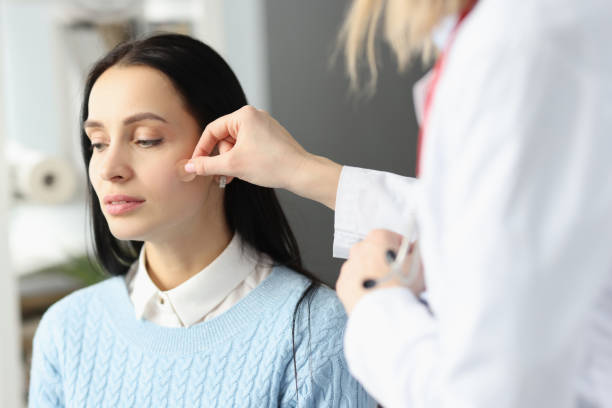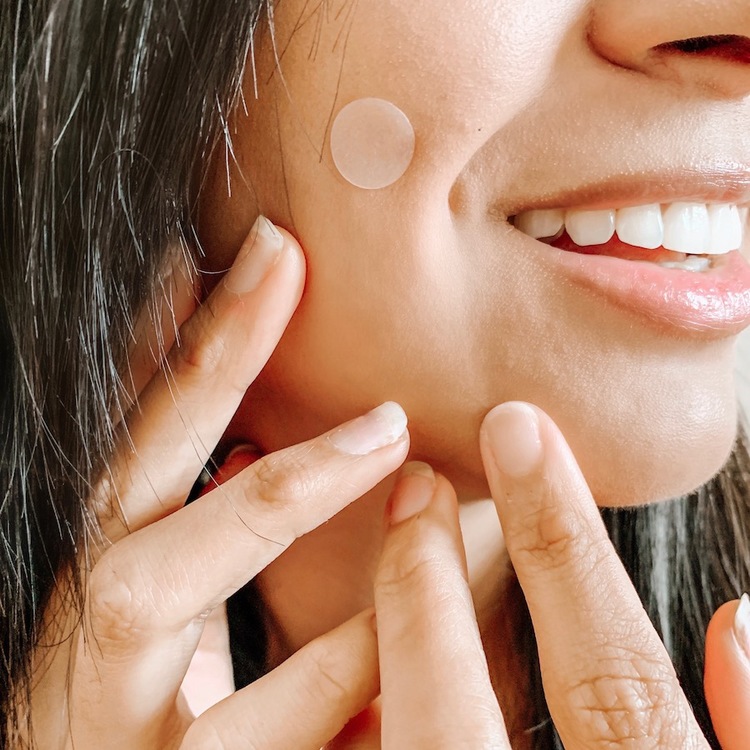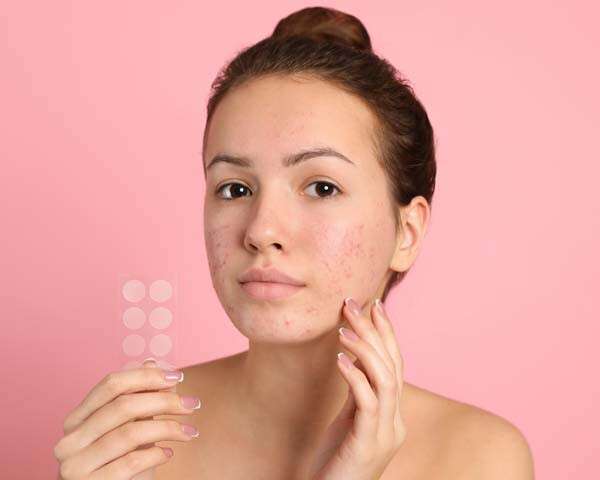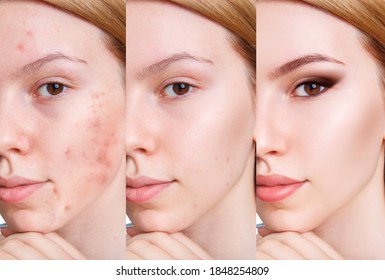
Acne is a chronic, inflammatory skin condition that causes spots and pimples, especially on the face, shoulders, back, neck, chest, and upper arms.
Whiteheads, blackheads, pimples, cysts, and nodules are all types of acne.
It is the most common skin condition in the United States, affecting up to 50 million Americans yearly.
It commonly occurs during puberty, when the sebaceous glands activate, but it can occur at any age. It is not dangerous, but it can leave skin scars.
The glands produce oil and are stimulated by male hormones produced by the adrenal glands in both males and females.
At least 85 percent of people in the U.S. experience acne between the ages of 12 and 24 years.
Fast facts on acne
Here are some facts about acne. More detail is in the main article.
●Acne is a skin disease involving the oil glands at the base of hair follicles.
●It affects 3 in every 4 people aged 11 to 30 years.
●It is not dangerous, but it can leave skin scars.
●Treatment depends on how severe and persistent it is.
●Risk factors include genetics, the menstrual cycle, anxiety and stress, hot and humid climates, using oil-based makeup, and squeezing pimples.
There are many suggested home remedies for acne, but not all of them are supported by research.


Diet: It is unclear what role diet plays in worsening acne. Scientists have found that people who consume a diet that offers a good supply of vitamins A and E and of zinc may have a lower riskTrusted Source of severe acne. One review describes the link between acne and diet as “controversial,” but suggests thatTrusted Source a diet with a low glycemic load may help.
Tea-tree oil: Results of a study of 60 patients published in the Indian Journal of Dermatology, Venereology, and Leprology suggested that 5-percent tea-tree oil may help treat Trusted Sourcemild to moderate acne.
If you want to buy tea-tree oil, then there is an excellent selection online with thousands of customer reviews.
Tea: There is some evidenceTrusted Source that polyphenols from tea, including green tea, applied in a topical preparation, may be beneficial in reducing sebum production and treating acne. However, the compounds in this case were extracted from tea, rather than using tea directly.
Moisturizers: These can soothe the skinTrusted Source, especially in people who are using acne treatment such as isotretinoin, say researchers. Moisturizers containing aloe vera at a concentration of at least 10 percent or witch hazel can have a soothing and possibly anti-inflammatory effect.
Causes
Human skin has pores that connect to oil glands under the skin. Follicles connect the glands to the pores. Follicles are small sacs that produce and secrete liquid.
The glands produce an oily liquidTrusted Source called sebum. Sebum carries dead skin cells through the follicles to the surface of the skin. A small hair grows through the follicle out of the skin.
Pimples grow when these follicles get blocked, and oil builds up under the skin.
Skin cells, sebum, and hair can clump together into a plug. This plug gets infected with bacteria, and swelling results. A pimple starts to develop when the plug begins to break down.
Propionibacterium acnes (P. acnes) is the name of the bacteria that live on the skin and contributes to the infection of pimples.
Research suggestsTrusted Source that the severity and frequency of acne depend on the strain of bacteria. Not all acne bacteria trigger pimples. One strain helps to keep the skin pimple-free.
Prevention and management tips
Here are some tips for looking after skin that has acne or is prone to it.

●Wash your face no more than twice each day with warm water and mild soap made especially for acne.
●Do not scrub the skin or burst the pimples, as this may push the infection further down, causing more blocking, swelling, and redness.
●Avoid popping pimples, as this makes scarring likelier.
●A specialist can treat a pimple that requires rapid removal for cosmetic reasons.
●Refrain from touching the face.
●Hold the telephone away from the face when talking, as it is likely to contain sebum and skin residue.
●Wash hands frequently, especially before applying lotions, creams, or makeup.
●Clean spectacles regularly as they collect sebum and skin residue.
●If acne is on the back, shoulders, or chest, try wearing loose clothing to let the skin breathe. Avoid tight garments, such as headbands, caps, and scarves, or wash them regularly if used.
●Choose makeup for sensitive skin and avoid oil-based products. Remove makeup before sleeping.
●Use an electric shaver or sharp safety razors when shaving. Soften the skin and beard with warm soapy water before applying shaving cream.
●Keep hair clean, as it collects sebum and skin residue. Avoid greasy hair products, such as those containing cocoa butter.
●Avoid excessive sun exposure, as it can cause the skin to produce more sebum. Several acne medications increase the risk of sunburn.
●Avoid anxiety and stress, as it can increase production of cortisol and adrenaline, which exacerbate acne.
●Try to keep cool and dry in hot and humid climates, to prevent sweating.
Acne is a common problem. It can cause severe embarrassment, but treatment is available, and it is effective in many cases.
Post time: Jan-17-2022
